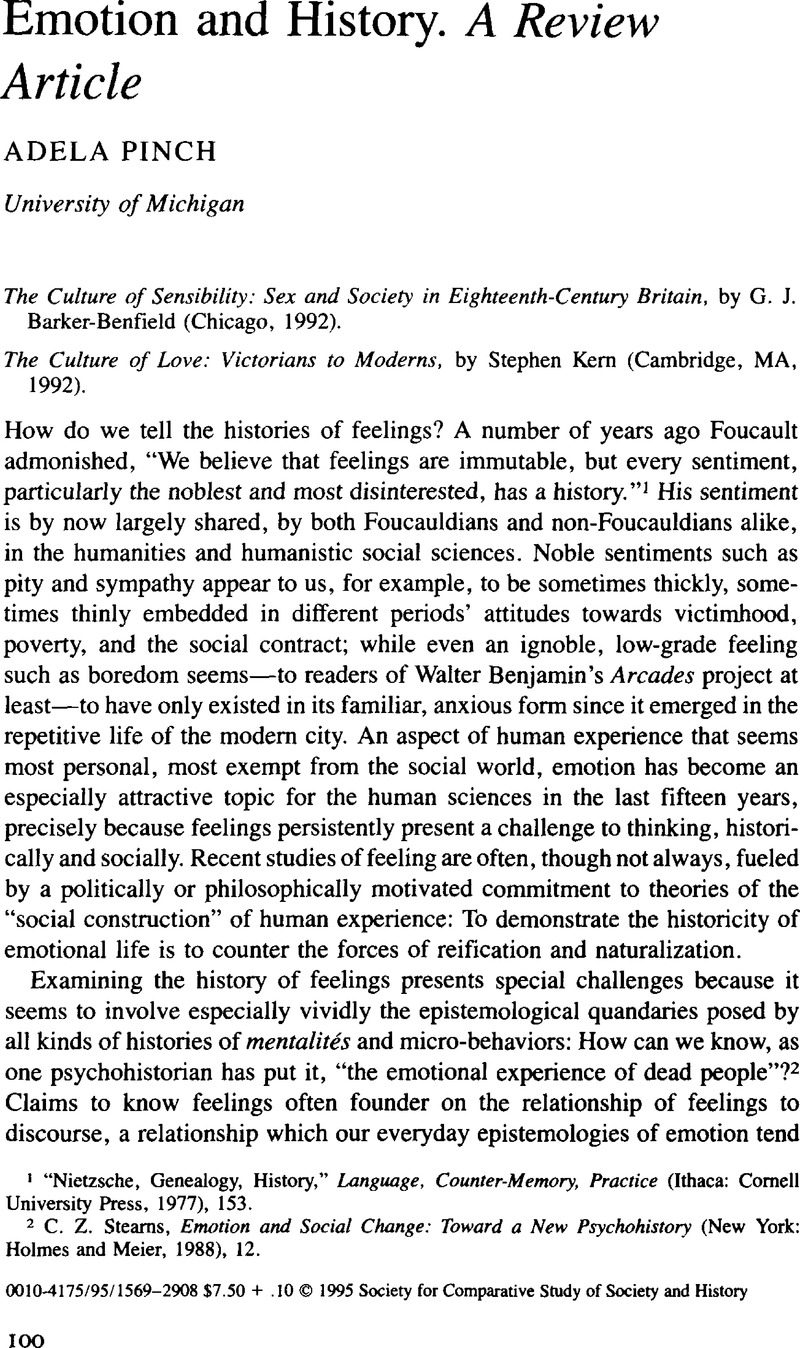Article contents
Emotion and History. A Review Article
Published online by Cambridge University Press: 03 June 2009
Abstract

- Type
- Science and Health
- Information
- Copyright
- Copyright © Society for the Comparative Study of Society and History 1995
References
1 “Nietzsche, Genealogy, History,” Language, Counter-Memory, Practice (Ithaca: Cornell University Press, 1977), 153.Google Scholar
2 Stearns, C. Z., Emotion and Social Change: Toward a New Psychohistory (New York: Holmes and Meier, 1988), 12.Google Scholar
3 Bridges, Thomas, The Adventures of a Bank-Note (London: T. Davies, 1770–71), 3:86.Google Scholar
4 Even stronger in this regard, however, is Virginia Sapiro's A Vindication of Political Virtue: The Political Theory of Mary Wollstonecraft (Chicago: University of Chicago Press, 1992).Google Scholar
5 Sustained versions of this argument can be found in two studies: Johnson, Claudia L., Equivocal Beings: Politics, Gender, and Sentimentality in the 1790s (Chicago: University of Chicago, 1994);Google ScholarEllison, Julie, Cato's Tears (forthcoming).Google Scholar
6 Kem, Stephen, The Culture of Time and Space, 1880–1918 (Cambridge, Ma.: Harvard University Press, 1983).Google Scholar
7 See, for example, Nancy Fraser's essays on Foucault in Unruly Practices: Power, Discourse, and Gender in Contemporary Social Theory (Minneapolis: University of Minnesota Press, 1989);Google Scholar and Anderson, Amanda, “Cryptonormativism and Double Gestures,” Cultural Critique, 21 (Spring 1992), 63–95, especially 64.CrossRefGoogle Scholar
8 Scott, Joan W., “The History of the Family as an Affective Unit,” Social History, 4 (October 1979), 515.CrossRefGoogle Scholar Also relevant here is Scott's appeal to “the literary” at the end of “The Evidence of Experience,” Critical Inquiry, 17 (Summer 1991), 793.Google Scholar
9 Wordsworth, , “note” to “The Thorn,” Lyrical Ballads, Brett, R. L. and Jones, A. R., eds. (London: Routledge, 1988), 289.Google Scholar
- 9
- Cited by




